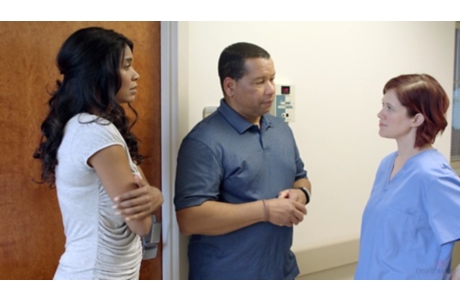Eldercare Mediation
Topic Overview
Dorothy was in her late 80s and had been losing her balance a lot. Her son thought it was time for her to move into a nursing home. Her daughter wanted her to go into an assisted-living facility. Dorothy just wanted to stay in her own home. The three of them argued for months about this. In the meantime, Dorothy fell twice. She escaped serious injury, but the falls just made them all argue more.
Then a friend told Dorothy about eldercare mediators. Dorothy immediately made an appointment with a local mediator. After a few meetings, the mediator helped Dorothy and her children agree to hire a handyman to make Dorothy’s house safe from fall hazards. They also made plans to hire a nurse to check in on Dorothy twice a day. The family will meet again in 3 months to see if they need to change Dorothy’s care plan.
What is eldercare mediation?
Eldercare mediation is the process of working with someone to help families deal with the legal, health, and emotional issues that come with aging. It’s based on the idea that, with a little help, family members can find the best solutions to family problems.
Families often choose mediators to help them figure out things like:
- Where is the best place for Mom and Dad to live?
- Should Mom or Dad still be driving?
- Who will care for them?
- What kind of care do they need?
- How will their care be paid for?
- What kind of end-of-life care do they want?
- Who should have financial or medical power of attorney for them?
Mediation can get emotional. But it’s important to remember that the goal of the mediation process is to make decisions, not to explore family members’ feelings and emotions.
Why choose eldercare mediation?
Sometimes people think that the only way to settle difficult family problems is to go to court. Mediation is a good alternative to hiring attorneys. It’s usually much less expensive and much faster than taking the legal route. Left to themselves and with a good mediator to help them along, family members can often find good solutions to family problems. And since they come up with the solutions themselves, the members of the family are more likely to make sure that the solutions work.
Mediation is a good choice when elder family members aren’t mentally competent enough to make decisions all on their own. A mediator can make sure that these older adults have a say in what happens to them. This can be reassuring to elders who may feel like the choices being made about them are out of their control.
How does this kind of mediation work?
Sometimes a judge will order a family to use a mediator. But things usually go better when someone in the family makes the suggestion. Elderly parents can also add a rule to their will or living trust. The rule would require that the family use mediation to help solve family problems.
Whether you use a trained eldercare mediator or someone else, the important thing is to find someone outside of your family who can:
- Run the meetings without favoring any one side.
- Make sure that everyone is heard, including the parent(s)—even if the parent has Alzheimer’s or dementia.
- Help the family settle issues that keep them apart.
- Help family members find solutions that work for the whole family.
As part of the elder mediation process, the family works together to:
- Decide who should take part in the mediation. The elderly parents and their children are usually present for the mediation sessions (even if that means taking part via phone or computer or both). The sessions can also include:
- The adult children’s spouses.
- Grandchildren or other relatives.
- The elderly parents’ friends, medical providers, pastors, or social workers.
- Lawyers or financial planners.
- Caregivers or geriatric care managers.
- Choose a mediator.The person you choose may be a trained eldercare mediator. Or it may be a social worker or any person your family feels comfortable with as a mediator. When you interview people to serve as your mediator, find out if they have the training and experience to deal with the legal, health, and emotional issues that come with aging. If you decide to hire a trained eldercare mediator, be aware that anyone can call himself or herself a mediator. Mediators aren’t licensed. To find eldercare mediators, talk with social workers or eldercare agencies in your community. You can also try the National Care Planning Council (www.longtermcarelink.net).
- Set a clear goal. Agree as a family on one clear goal. Trying to solve too many things at once can get confusing and make the mediation process last too long.
- Set a clear time limit. When you’ve all agreed on a goal, give yourselves a specific amount of time to reach it.
- Start talking. When family members can agree on the final goal, the mediator can help them get there. If they can’t agree, whatever progress they’ve made through the mediation process can help if the issue goes to court.
Current as of: November 7, 2018
Author: Healthwise Staff
Medical Review:Anne C. Poinier MD – Internal Medicine & Catherine D. Serio PhD – Behavioral Health & Martin J. Gabica MD – Family Medicine & Kathleen Romito MD – Family Medicine & Christine Fordyce MD – Family Medicine, Geriatric Medicine
This information does not replace the advice of a doctor. Healthwise, Incorporated, disclaims any warranty or liability for your use of this information. Your use of this information means that you agree to the Terms of Use. Learn how we develop our content.



